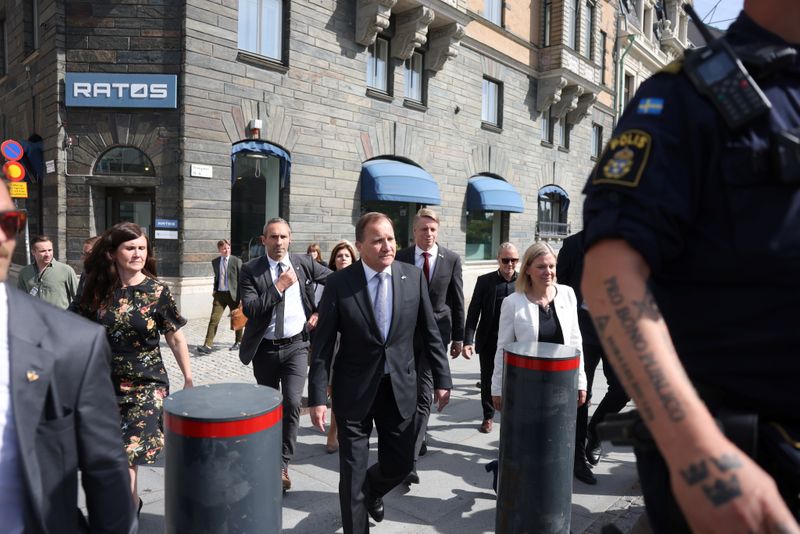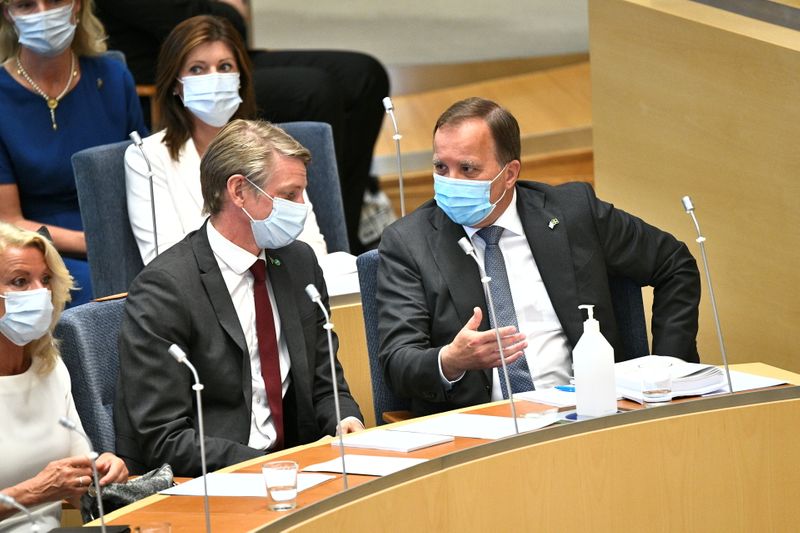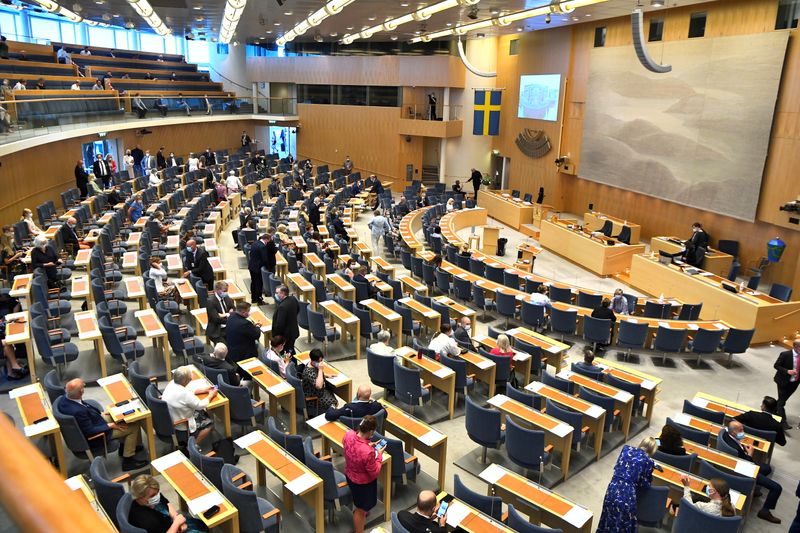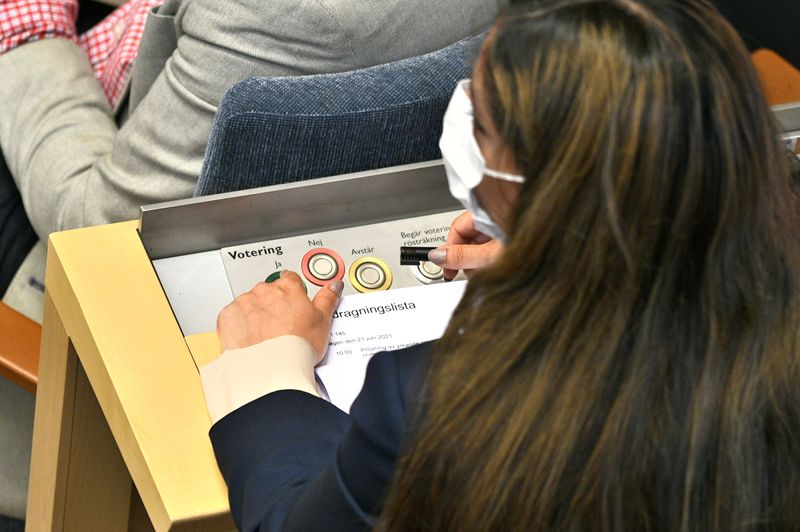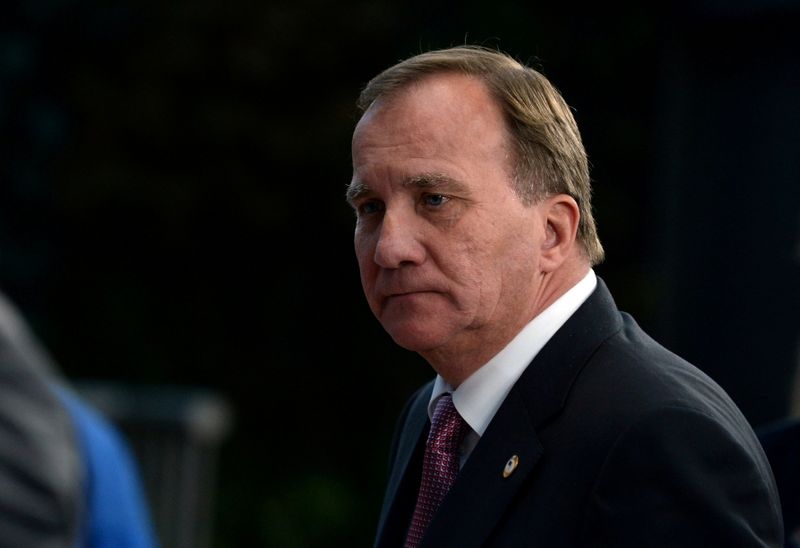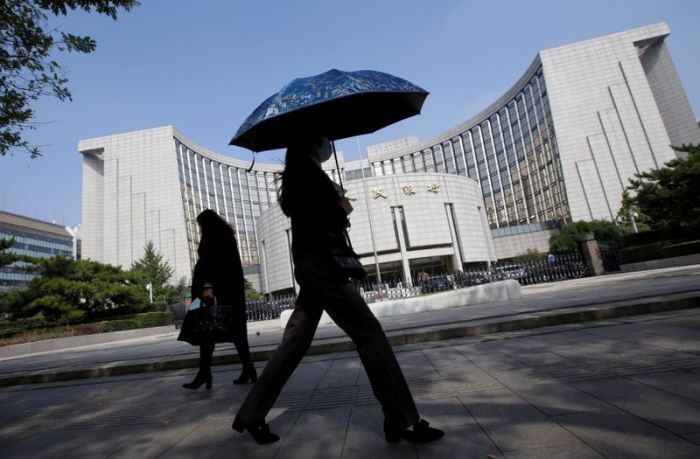(Adds further Left Party comment, new analyst comment)
By Johan Ahlander and Simon Johnson
STOCKHOLM (Reuters) -Swedish centre-left Prime Minister Stefan Lofven was ousted in a no-confidence vote in parliament on Monday, leaving him to decide whether to call a snap election or resign to hand the speaker the job of finding a new government.
Lofven, who was defeated after nearly seven years in power over a plan to ease rent controls for new-build apartments, has a week to reach his decision. If he opts for a snap election, it would be Sweden’s first since 1958.
With parliament deadlocked and opinion polls showing the centre-right and centre-left blocs evenly balanced, the political crisis may not be resolved quickly. But economists do not expect the political uncertainty to weigh on the economy because of the strict fiscal rules under which Sweden operates.
“The government now has a week to decide and we will hold talks with our cooperation parties,” Lovfen told a news conference after the vote.
“It is what is best for the country that is important. We will work as fast as we can.”
The nationalist Sweden Democrats called the vote after the Left Party withdrew support for the led by Lofven’s Social Democrats over the rent control reforms.
The no-confidence motion, which required 175 votes in the 349-seat parliament to pass, was supported by 181 lawmakers.
Lofven, 63, is the first Swedish prime minister to be ousted by a no-confidence motion put forward by the opposition.
It is not clear to whom the speaker might turn to form a new government if Lofven quits, but the opinion polls suggest a snap election might not bring clarity either.
Lofven secured a second term in 2018 only after months of negotiations following an election in which the anti-immigration Sweden Democrats made big gains, redrawing the political map.
Since then he has led a fragile minority government of Social Democrats and Greens, supported by former political rivals the Centre Party and the Liberals but needing the tacit approval of the Left.
UNCERTAINTY
“It is not the Left Party that has given up on the Social Democrat government, it is the Social Democrat government that has given up on the Left Party and the Swedish people,” Left Party leader Nooshi Dadgostar said.
Dadgostar said that even though her party had voted against Lofven, it would never help “a right-wing nationalist government” take power. She said the Left Party would like to see Lofven return as prime minister “but without market rents”.
Sweden Democrat leader Jimmie Akesson, whose party has moved from the far-right fringe to become the third biggest in parliament, said it could take time to break the deadlock.
“I would not exclude a snap election,” he said.
Popular appetite for a snap poll may be limited while Sweden is fighting the effects of COVID-19, especially as an election is due in September next year. Sweden has been hit by a severe third wave of the virus but fresh cases and the number of people being admitted to intensive care are declining quickly.
Lofven might yet be able to find a way out of the crisis and form a new government if the Centre Party agrees to drop rent reform.
“It doesn’t sound like it would be unreasonable to solve it,” Henric Oscarsson, political scientist at Gothenburg University said. “But that is really up to the Centre Party.”
Rental reform is part of a platform agreed between the government and the Centre and Liberal parties and is not a policy the Social Democratic party is keen on.
(Reporting by Niklas Pollard, Johan Ahlander, Simon Johnson and Anna Ringstrom; Editing by Clarence Fernandez, Niklas Pollard and Timothy Heritage)

